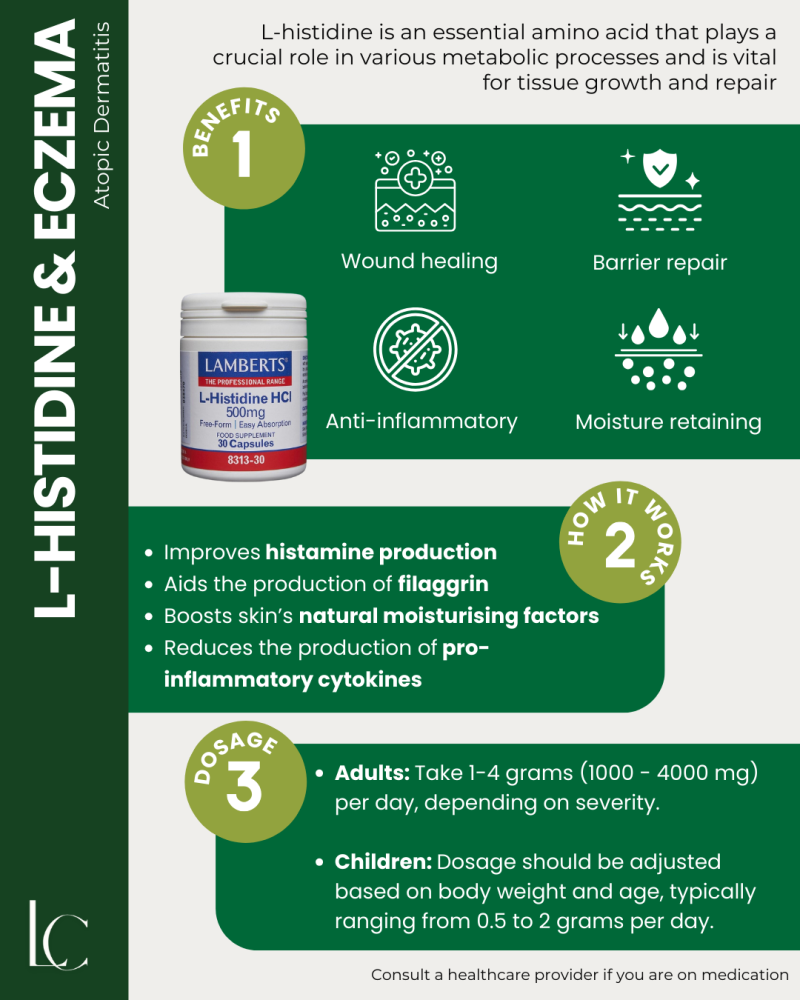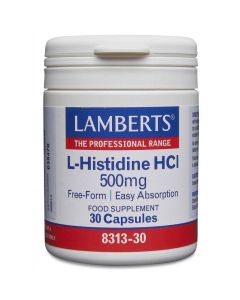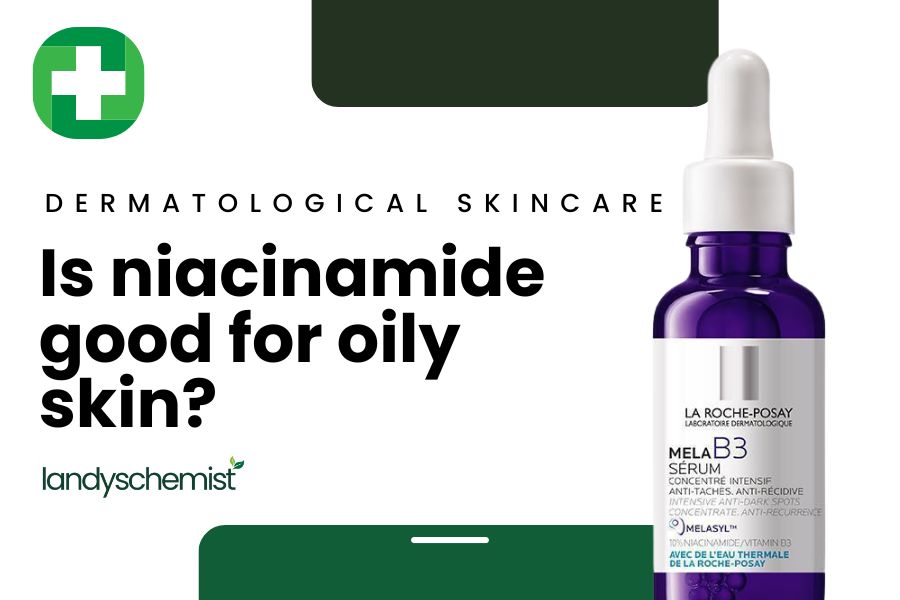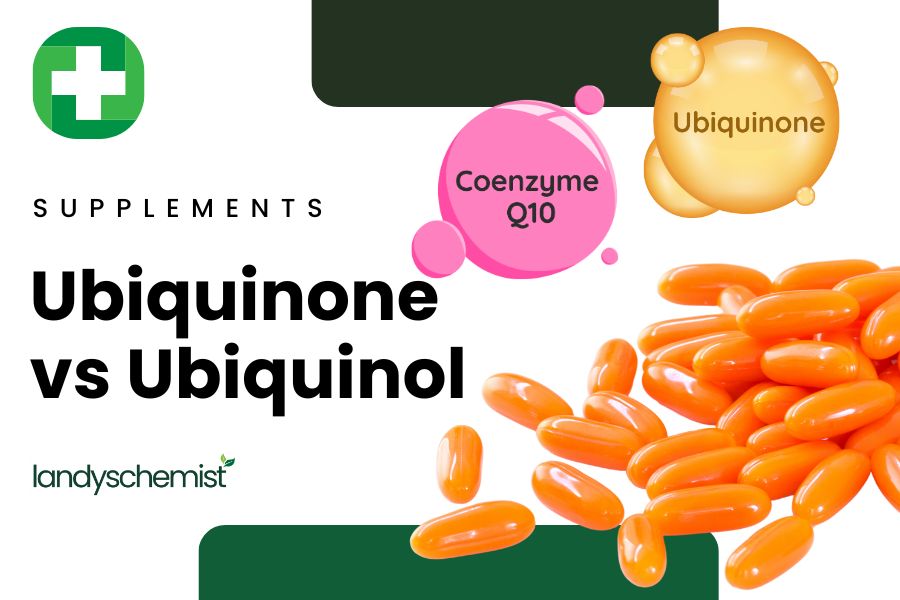
L-Histidine for Eczema: Benefits and Dosage
Eczema, also known as atopic dermatitis, is a prevalent skin condition that can severely impact an individual's quality of life. Recent studies have underscored the potential benefits of L-histidine, an essential amino acid, in managing this condition.

What is L-Histidine?
L-histidine is an essential amino acid that plays a crucial role in various metabolic processes. It is vital for tissue growth and repair, the production of red and white blood cells, and the synthesis of histamine—a compound key to immune responses, gastric acid secretion, and neurological functions.
Benefits of L-Histidine for Eczema
L-histidine has several applications for skin health, especially in managing eczema. Key benefits include:
- Moisturisation: Helps maintain skin hydration.
- Barrier Repair: Assists in repairing the skin barrier, reducing dryness and irritation.
- Anti-inflammatory: Lowers inflammation, helping to reduce redness and swelling.
- Antioxidant: Shields skin cells from oxidative damage.
- Wound Healing: Promotes faster healing of skin lesions and wounds.
How L-Histidine Works to Improve Eczema
L-histidine’s effectiveness in alleviating eczema is attributed to several mechanisms that enhance skin health:
- Histamine Production: L-histidine is a precursor to histamine, which plays a role in immune response and inflammation control. Adequate histamine levels can help modulate allergic reactions and inflammation, common in eczema.
- Skin Barrier Restoration: L-histidine aids in the production of filaggrin, a protein crucial for maintaining the skin barrier. A robust skin barrier prevents water loss and blocks irritants and allergens, reducing flare-ups.
- Moisture Retention: By enhancing the skin’s natural moisturising factors, L-histidine helps maintain hydration, alleviating dryness and irritation associated with eczema.
- Anti-inflammatory Properties: L-histidine can reduce the production of pro-inflammatory cytokines, thus decreasing inflammation and the severity of skin lesions.
Scientific Evidence Supporting L-Histidine for Eczema
Numerous studies have highlighted the effectiveness of L-histidine in managing eczema:
Eczema Relief:
There are several studies published including pilot studies and clinical trials that have found that L-histidine supplementation significantly improved skin hydration and reduced atopic dermatitis symptoms in both adults and children. The reduction in symptom severity was comparable to the effects of mid-level topical steroids, which indicates a promising alternative or complementary treatment for atopic dermatitis.
Skin Barrier Function:
Research indicates that L-histidine aids in restoring the skin barrier, which is often compromised in eczema patients. L-histidine restores the skin barrier by enhancing the production and processing of filaggrin, contributing to the formation of natural moisturising factors and the structural integrity of the skin.
Recommended Dosage of L-Histidine for Eczema
The appropriate dosage of L-histidine can vary based on individual needs and the severity of the condition. General recommendations include:
- Adults: Take 1 to 4 grams (1000 mg - 4000 mg) of L-Histidine per day, depending on the specific condition and severity. We do not recommend taking over 1 gram per day unless you have spoken to your doctor.
- Children: Dosage should be adjusted based on body weight and age, typically ranging from 0.5 to 2 grams per day.
Potential Side Effects
While L-histidine is generally considered safe for most people, it can cause side effects in some cases. Potential side effects include:
- Digestive Issues: Nausea, vomiting, or diarrhoea.
- Headaches: Some individuals might experience headaches.
- Allergic Reactions: Rarely, allergic reactions can occur, causing symptoms like rash, itching, or swelling.
- Interactions with Medications: L-histidine can interact with certain medications, so it is essential to consult a healthcare provider if you are on medication.
How to Incorporate L-Histidine into Your Eczema Treatment Plan
To effectively incorporate L-histidine into your eczema treatment plan, consider the following tips:
- Consult a Healthcare Professional: Tailor the dosage to your needs and speak to your doctor if you are taking other medications for eczema.
- Combine with Other Treatments: Use L-histidine alongside other eczema treatments, such as emollients and topical steroids, for better results.
- Monitor Your Skin’s Response: Keep track of any changes in your skin condition to assess the effectiveness of L-histidine.
Conclusion
L-histidine shows promise in managing eczema, offering benefits such as improved skin hydration, reduced inflammation, and enhanced barrier repair. However, it is vital to approach supplementation with care, adhering to recommended dosages and being aware of potential side effects.
For those seeking a natural approach to managing eczema, L-histidine could be worth considering as part of your skincare strategy. With the right guidance and usage, it could be a valuable addition to your routine in the fight against eczema.
FAQ's
How effective is L-histidine for Psoriasis?
L-histidine shows potential in improving psoriasis symptoms by enhancing skin barrier function and reducing inflammation, similar to its effects in atopic dermatitis. However, specific studies on L-histidine's efficacy for psoriasis are limited, and further research is needed to confirm its therapeutic benefits for this condition.
What are the general health benefits of L-histidine?
L-histidine supports immune function, reduces oxidative stress, lowers inflammation, and may improve conditions like anemia and metabolic syndrome.
Is L-histidine safe to take whilst pregnant or breastfeeding?
L-histidine supplementation during pregnancy or breastfeeding is generally not recommended without medical supervision. The safety of L-histidine supplementation for pregnant or breastfeeding women has not been well-established, and there is insufficient data to confirm its safety.
Can L-histidine supplements be taken long-term?
L-histidine are generally safe to be taken long-term. While safe at low doses for short periods, higher doses and prolonged use may cause side effects like muscle weakness and digestive issues, and could affect protein metabolism and organ function. Medical supervision ensures safe and effective use. We recommend you stick to a dosage around 1000 mg daily or under.
How long does it take to see results?
Initial results from L-histidine supplementation for eczema can be seen within 4 weeks, with significant improvements, including a 34% reduction in SCORAD scores. Continued use over 8 weeks shows further improvements, with up to a 32% reduction in symptoms. Consistent supplementation is key for maintaining results, though individual responses may vary.
Can I take L-histidine for allergies and hay fever?
Yes, L-histidine can help manage allergies, including hayfever, by regulating histamine levels, which are crucial in allergic responses. It may reduce the severity of allergic symptoms and support overall immune health.
References
- https://www.ncbi.nlm.nih.gov/pmc/articles/PMC7527268/
- https://www.urmc.rochester.edu/encyclopedia/content.aspx?contenttypeid=19&contentid=Histidine
- https://www.ncbi.nlm.nih.gov/pmc/articles/PMC7146355/
- https://www.researchgate.net/publication/361035669_Genome_of_Malassezia_arunalokei_and_Its_Distribution_on_Facial_Skin
- https://www.gastrojournal.org/article/S0016-5085(08)01729-0/pdf
- https://www.dovepress.com/feeding-filaggrin-effects-of-l-histidine-supplementation-in-atopic-der-peer-reviewed-fulltext-article-CCID
- https://pubmed.ncbi.nlm.nih.gov/33000160/
- https://nationaleczema.org/blog/5-new-ish/
- https://pubmed.ncbi.nlm.nih.gov/2430398/
- https://dermnetnz.org/topics/scorad






